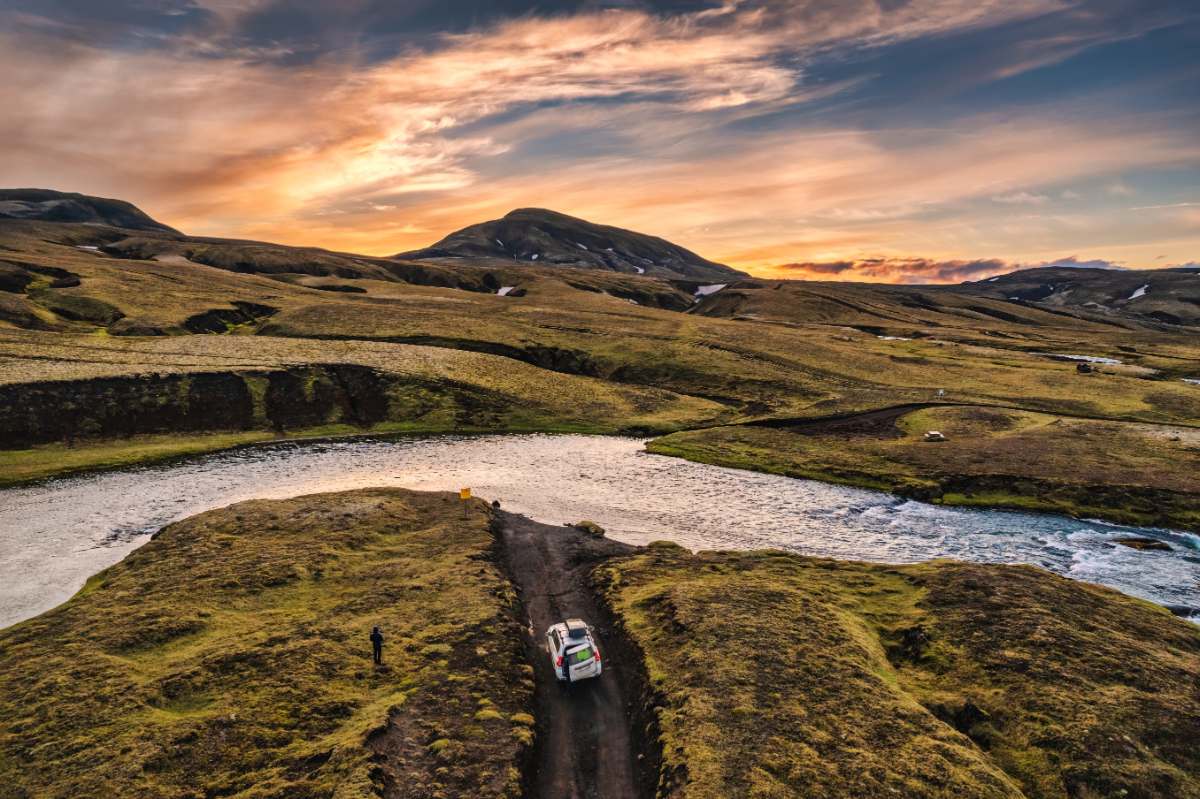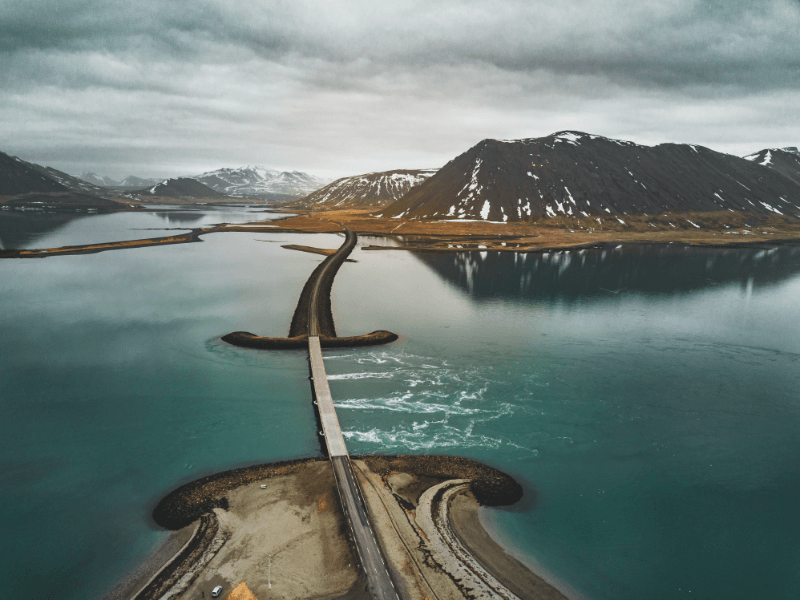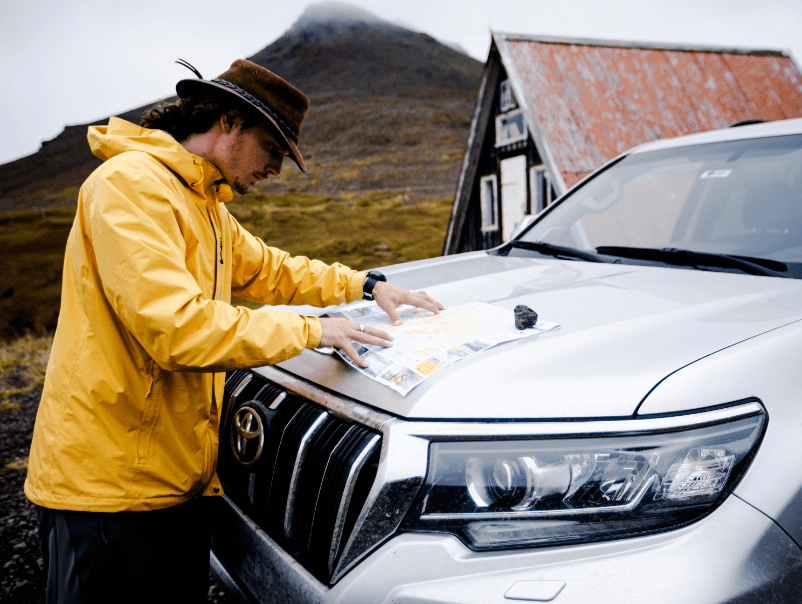Let’s face it, flying to Iceland and hiring a diesel vehicle is not the most eco-friendly vacation choice. If you were 100% committed to an environmentally friendly way to travel, then you’d opt for a bicycle trip in your home country. But we all have to balance out our priorities; it is possible to plan a more eco-friendly RV trip by making certain conscious choices.
First and foremost, anyone that chooses Iceland as a travel destination is probably a nature enthusiast. Iceland is all about exploring the great outdoors and reveling in the wonders of the natural world, o it follows that we will all want to protect what we love and preserve the pristine nature of Iceland.
In this article, we will explore ways and means to plan a more environmentally friendly RV vacation, from your packing list and itinerary plans, to the activity choices that you make along the way.
Consider the time of year to travel
The high season in Iceland coincides with the summer months, going from June to August. This is when the country welcomes the majority of its visitors and the roads are at their busiest. Iceland is a small country with a finite amount of space and resources, so this time of year is particularly heavy on the immediate environment.
Here’s one way that you can really make a difference: don’t choose the summer months to travel to Iceland. The ideal months are May and September, when the weather is ideal to enjoy your motorhome hire. This is when the weather conditions and the longer daylight hours still allow for optimum enjoyment, but the pressure on the roads, sights and general infrastructure is much less intense.
As well as being more environmentally friendly, traveling at this time of year has other benefits. Prices are generally more affordable in the low season, so you’ll pay less for camper van rentals and for campground fees, as well as for tours and services!
Another big plus is that the busy sights will have far fewer tourists visiting them, which means that you’ll have a much nicer time looking around. You’ll enjoy more space and fewer distractions. It also means that the paths and general infrastructure will have less footfall, allowing time for grass to recover from all those walking boots
Of course, for some people, traveling outside of the high season isn’t an option. Perhaps you need to travel at certain times because of your job or your kids’ school terms; that’s ok, there are many other ways to reduce the environmental impact of your trip to Iceland. 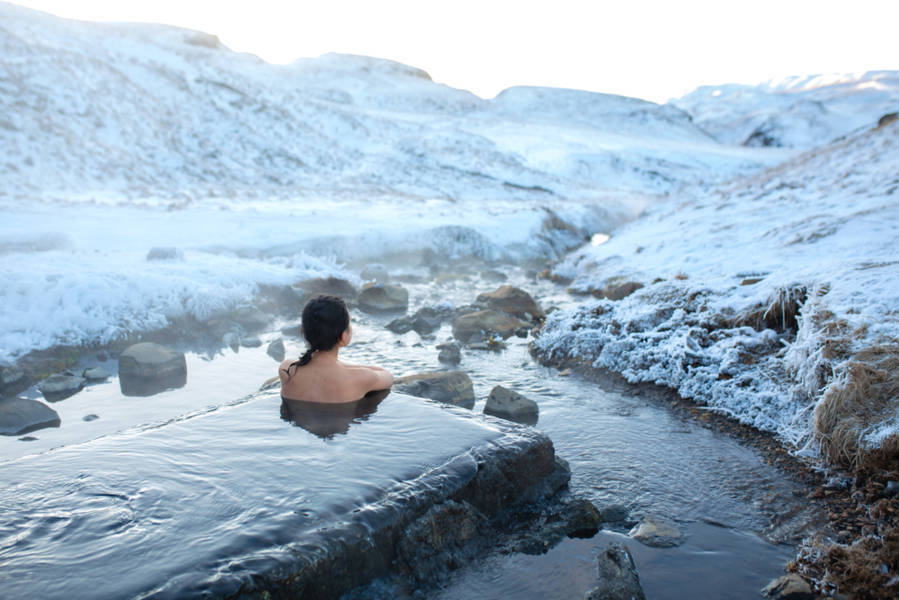
Take your time and enjoy slow travel
When you visit Iceland, it can be tempting to try and fit in as much as you possibly can. If you are a nature lover, Iceland’s multiple natural wonders might be a bit overwhelming: with its stunning waterfalls, vast glaciers, mighty volcanoes and epic fjords, you’ll feel like a kid in a sweet shop!
But take things slow and in a mindful manner, enjoy the present and don’t over-fixate on what’s next! One of the best ways to enjoy an environmentally friendly RV vacation is to take your time. This means coming to Iceland for as long as possible and not trying to do too much when you get here.
We all know that airplane travel is one of the biggest environmental polluters, so rather than taking many short city breaks and hopping from country to country for your vacations, choose fewer trips and stay for longer. That way, you’ll really be getting the most out of your air miles. International travel is a luxury after all, so make it count!
When you arrive in Iceland, you should also think carefully about your itinerary. Take your time and don’t spend your whole holiday in the car; venture off on foot to see what’s up that remote peak or down that steep hill. Factor in backpacking hikes, horse riding days and days to just sit and stare at the wonders around you.
This is a much more rewarding way to travel than rushing around and ticking off sites from a list. By traveling slowly and more mindfully, you’ll have the chance to slow down and go from the state of ‘doing’ to that of simply ‘being’. Believe us, you’ll breathe a big sigh of relief, which is what we all want from a vacation, isn’t it?
Another plus of slow travel is that you’ll have the time to get to know each place better. Delving a little deeper into a place, more often than not, yields many interesting discoveries. You’ll have time to find hidden gems and even make some Icelandic friends along the way!
Offsetting your carbon footprint
Traveling, especially flying, always involves an increase in carbon emissions. So to offset this, you can calculate your usage and then donate to an organization that combats its negative effects. There are various carbon calculators available online, as well as many organizations and charities you can donate to.
There are also some carbon-capturing projects that are entirely Iceland specific. One fantastic one is The Icelandic Wetland Fund. Wetlands actually trap and retain a huge amount of carbon from the atmosphere.
The Icelandic Wetland Fund works hard to restore and maintain wetlands across Iceland. As well as being great for the environment, their work protects important habitats for Iceland’s birdlife. 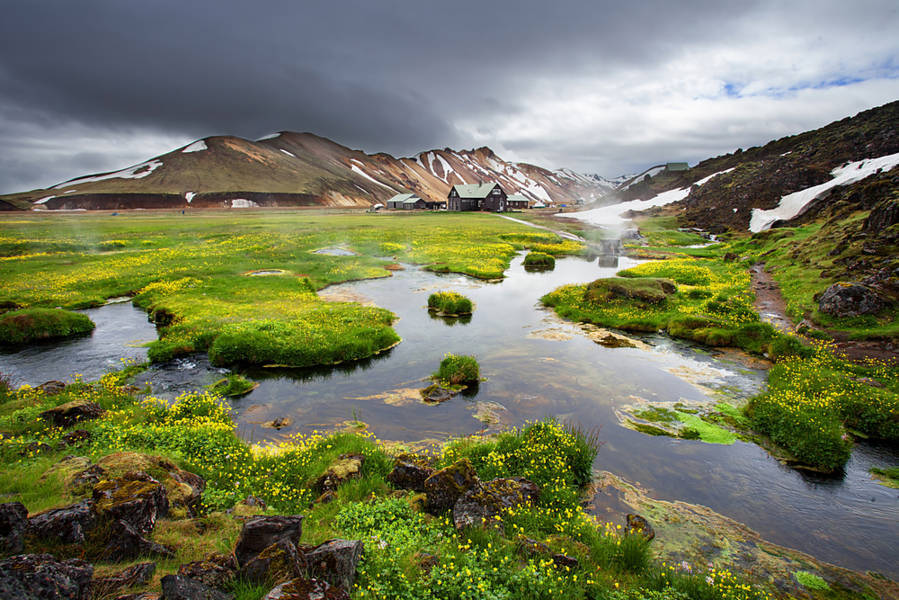
Being a responsible tourist in Iceland
If you are visiting Iceland for a road trip, there is much that you can do to be a responsible tourist. There are certain important rules around driving in Iceland, as well as for hiking and camping, which have been put in place with the sole purpose of protecting its pristine environment.
Iceland’s natural vegetation is extremely fragile, so any disturbance can be really hard on it. This is especially true of slow growing moss that can sometimes take years to recover. With this in mind, it is essential to stick to designated paths and roads when driving or hiking in Iceland.
One of the main rules around driving is that you must only drive and park in designated areas. This might sound obvious, but people have been known to attempt to drive off-road in Iceland, both in regular vehicles and in 4x4 trucks. This can wreak havoc on slow growing vegetation, so it is strictly prohibited.
The same premise goes for camping in Iceland. Previously, people were allowed to camp freely in the wild, all across the Icelandic landscape. But as tourism grew in popularity over the years, this became increasingly unsustainable. Eventually, in 2015 wild camping was officially banned in Iceland and it has really helped to protect the beauty of the countryside for all.
Sustainable travel checklist
There is much more that you can do to reduce the environmental impact of your vacation. From what you choose to eat and drink to how you spend your travel cash, here’s a handy checklist for being an environmentally responsible tourist in Iceland:
- Make the most of your your vacation time and stay longer
- Travel and pack light
- Pack carefully so that you have what you need with you
- Offset your vacation carbon footprint
- Travel outside of the high season if possible
- Slow down and appreciate every moment and place
- Drive steadily and don’t hit the gas too hard
- Never park off-road or wild camp
- Protect the wild places and stick to the path
- Leave no trace – always take your litter with you
- Take reusable water bottles and fill them with delicious tap water
- Buy locally produced products and food
- Avoid eating whale and puffin
- Make sure any boat trips you take are environmentally friendly
- Spend your money mindfully with conscious companies and local businesses
- Reuse and recycle wherever possible
Get in touch to discuss your cheap camper van rental options for a slow-travel Iceland adventure today!



 By
By 

